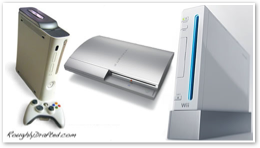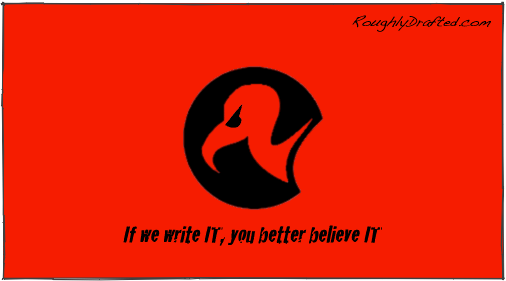
Top 10 Apple Myths of 2006: Osborne Effect
What a wild ride 2006 turned out to be for Apple Computer. The company sold more Macs than ever, while delivering an entirely revamped Mac product lineup based on Intel processors.
Apple also held onto its lead in music players with the iPod, and online music sales through the iTunes Store. After expanding iTunes into video downloads, it rapidly picked up the vast majority of that market as well.
Throughout its best-ever year however, the company was also dogged by panicked rumors and misleading reports. Here's a look at the top ten myths perpetrated against Apple by the usual suspects: opportunist profiteers, shady shock tabloids, self appointed experts, and the incessantly pandering rumor mill.
Myth 1: The Register's Osborne Effect Panic
This myth got started six months early. In June 2005, after Apple announced plans to move the Mac to Intel processors, Andrew Orlowski of the Register reported that Apple would face a "painful migration," and asked, "who in their right minds would buy a Power-based Mac now, or in the next eighteen months?"
"This is called the Osborne Effect," Orlowski continued, "announcing a successor without being able to ship it. It led to the collapse of [Adam Osborne's] pioneering company." 

According to Orlowski, Apple would not only face major problems migrating to Intel processors, but was really on the wrong path. He thought Apple needed to chase after IBM's Cell processor instead.
Orlowski compared information he had about Intel with IBM, who "consistently tops the TPC charts with its POWER4 and POWER5 processors, and, with the Cell, has the most talked-about chip in a decade."
A day after posting his original Osborne Effect panic article, Orlowski published another article based on feedback from readers. It announced, "Apple faces a sales chill that could cost it billions of dollars," adding, "it may be even worse than it looks on the surface."
Orlowski further predicted that "a remarkable number will balk at the idea of buying a machine which boasts a poor shelf life." Of course, computers are tools that rapidly obsolesce anyway, not goods that are put on a shelf.
The Fallout
Blog panic about the Osborne Effect was so intense at the time that even googling today, one can find lots of remaining FUD fossils. Wikipedia created an Osborne Effect article celebrating the Register's PowerPC panic.
All the doom associated with transitioning to Intel--and away from PowerPC, including the “talked-about” Cell--conveniently ignored the fact that Apple had earlier managed a seamless transition from Motorola 68K processors to the PowerPC, and later from the Classic Mac System to the entirely new Mac OS X.
Should Apple have blown off a partnership with Intel to stand in line behind Sony for the Cell processor, which looked good on paper? Did being "talked-about" help the Cell any more than it did “Snakes on a Plane?”
Did Orlowski's prediction that Apple would skid though the next year and a half hemorrhaging Power Mac sales and failing to ship anything new turn out to be true? Are all the cool kids using the Cell processor today? Has Intel fallen off the map and dragged Apple into the inky void with it?
No, Orlowski's sensationalist article just created a short term panic among those who trusted the Register as a source of news, not tabloid-style fear, uncertainty, and doubt.
Within a week of The Register’s story, RoughlyDrafted published the response Why Apple won't suffer the Osborne Effect. The article took apart the fallacy of the much ballyhooed Osborne Effect and presented how Apple’s circumstances were far different from Osborne's:
"Tech columnists love to rehash old stories and suggest the future will play out just like a vaguely similar event from the past. But as old stories are retold, they become celebrated legends that eventually grossly distort what actually happened."
Prior to MacWorld in January of this year, Apple's customers were left expecting the first Intel Macs by summer, and a complete transition by some time in 2007. Instead, Apple shipped the first Intel Macs several months ahead of schedule, and the full transition for Macs was complete by Apple’s summer WWDC event.
There was no painful migration, no billion dollar losses, and no PowerPC panic. That's because Apple introduced developer tools and a Universal Binary strategy to ensure that existing PowerPC Macs and Intel Macs would all run the same software. 

And the Cell? Well, Sony struggled to release it at the end of the year in the PlayStation 3. There are no titles that really take advantage of the new processor, and supplies have been highly constrained.
Clearly, Apple engineers better understood the issues involved in migrating to a new processor than Orlowski or the bloggers reflecting his panic mongering, despite the Cell being “talked-about” last year.
Hiding the Damages
The Osborne Effect Wikipedia article initially cited the RoughlyDrafted, which at the time, ran counter to everything written by the tech wags who were gushing about Apple's imminent collapse. Without referring to Wikipedia or RoughlyDrafted, the Register then backpedalled on its own Osborne Effect hype.
Once it had all blown over, the bloggers forgave themselves for all their unbridled conjecture and references to RoughlyDrafted were deleted from Wikipedia.
At the end of 2006, we now know that the Intel transition was great for Apple, its developers, its customers, its partners, and really everyone apart from Dell, HP, and other PC makers who are stuck building PCs that can only recommend running Windows.
The Register as since moved on to create unfounded panic in other topics, and Wikipedia has been edited to suggest that the Register was right all along and never mislead anyone with its high pitched panic mongering.
Next Article:
This Series









Wednesday, December 27, 2006


 Bookmark on Del.icio.us
Bookmark on Del.icio.us Discuss on Reddit
Discuss on Reddit Critically review on NewsTrust
Critically review on NewsTrust Forward to Friends
Forward to Friends
 Get RSS Feed
Get RSS Feed Download RSS Widget
Download RSS Widget





